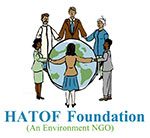Themes
- Climate Change
- Biodiversity
- Energy
- Food and Agriculture
- Global policy
- Finance
- Blue Economy
- Chemicals & Waste

Climate Change
Climate change is an urgent threat to humanity that demands swift, collective and decisive action.
Climate impacts are being felt all around the world and on track to get much worse. From fires, droughts, floods, heat waves, extreme weather events, sea-level rise, novel diseases, and shrinking freshwater supplies, the impact of climate change is much felt now than ever before.
Addressing climate change requires changes to our energy use, how we produce food, and our consumption patterns. The urgency of climate threat demands swift, collective and decisive actions that ensure that human progress, economic development, and environmental protection take place together in a sustainable manner.
Our Work
At HATOF, our role is to ensure balance between collective social interests and environmental protection for current and future generations through collective local and global actions. HATOF fosters collaboration among governments, private sector, academia and civil society organisations at local, national and international scale with shared goal to regulate human access to, use of, and impacts on the environment.
We advocate and raise awareness for, sustainable production and consumption, renewable energy and energy efficiency, protection forest and help people to adapt to the impact of climate change. We particularly support our stakeholders to develop and implement low-carbon, climate-resilience projects and programmes to reduce emissions and enhance adaptive capacity of local communities.
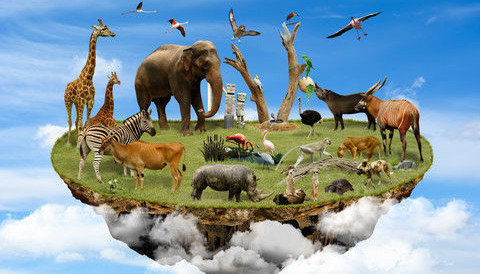
Biodiversity
All of the Earth’s species work together to survive and maintain their ecosystems
Biological resources provide for at least 40% of the world’s economy and 80% of the needs of the poor. Meanwhile, the world continue to suffer from biodiversity loss as a result of threats associated with loss, fragmentation and degradation of habitat, unsustainable use of natural resources, climate change, the spread of invasive species and many more.
Our Work
We work to advocate and raise awareness about restoration, conservation, protection and sustainable utilisation of biological resources.
Over the years HATOF has implemented several conservation projects and programmes, and recovered more than 2000 hectares of degraded land and coastal areas, whiles providing sustainable alternative livelihood to over 1000 beneficiaries along project sites in Ghana.
We continue to promote nature-based solution actions to address the global challenges, such as climate change, food and water security, and poverty reduction.
HATOF promotes youth engagement in national and international CBD negotiation and national policies process to address biodiversity loss. To ensure more coordinated youth voices and engagement in halting biodiversity loss in Ghana, the National chapter of the Global Youth Biodiversity Network (called Ghana Youth Biodiversity Network) was established in August 2017, with HATOF Foundation being the host secretariat.

Energy
Sustainable energy for all is a fundamental ingredient in human life.
There is no industrial, agricultural, health, domestic, or any other sort of process that does not require a degree of external energy. Therefore, energy is the driving force towards economic and social development.
However, the growing worldwide demand for energy, and problems of scarcity and environmental impact associated with conventional sources are at the base of a very probable energy crisis in the next two or three decades.
Petroleum will become increasingly expensive and scarce, while the climatic effects of massive use of all fossil fuels will by then be clearly felt.
At HATOF, we advocate for the development of sustainable energy.
We aim for relative decoupling of the energy sector and so promote policies to increase access to energy for all, energy efficiency and gradual phase-in of renewable energy in multiple economic sectors such as industry, transport and agriculture.
Our team of energy experts also carry out impact modelling and grid impact assessments, conduct energy audits and offer strategic training and capacity development in renewable energy options and energy efficiency for public and private sector organisations and NGOs to acquire and apply resource productive technologies in their institutions.

Food and Agriculture
Food security is a universal goal to ensure that “all people, at all times, have physical, social and economic access to sufficient, safe and nutritious food that meets their dietary needs and food preferences to live an active and healthy life” (FAO,2001).
Nearly 27.4% of Africa’s population is currently food insecure. The continent is vulnerable to hunger because 65% of its labour force is involved in agriculture which is predominantly rain-fed.
The predominance of rain-fed agriculture results in food systems that are highly sensitive to rainfall variability. Local farmers with limited options to increase food production in times of weather and rainfall variability, rely on wetlands for their food security and income for sustaining their livelihoods.
As the world population is projected to increase to over 9 billion by 2050, an increase in food production by 60% is also required to feed the diverse population. To increase food production hinges on the availability of land and water resources, which are vulnerable to the impact of climate change.
Our Work
HATOF works to bring out the interconnectedness and interdependency between wetlands, water security, and food security by providing information to the national governments and relevant stakeholders on the need to integrate and include inland aquatic ecosystem into the discussion on sustainable ocean and sea development.
HATOF also works to improve efficiency and productivity of the land through partnerships with research institutions, academia, and government to ensure food security and provide income generating options. Our work has included profiling climate Smart Agriculture technologies, integrated coastal zone management, restoration of forest cover, and participatory learning actions.
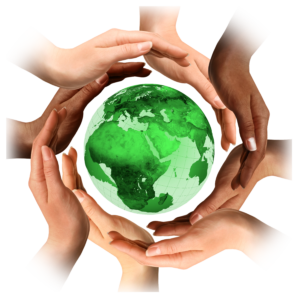
Global policy
The increasingly global interdependence calls for collective actions to address global environmental challenges.
Collective and decisive actions are thus required to address the increasing dangers of permanent environmental damage resulting from greenhouse gases (especially C02) leading to global warming, the inexorable loss of biodiversity resulting in part from the destruction of tropical rain forests, and the worsening poverty and economic crisis.
Our Work
HATOF actively participates in multilateral Environmental forums including the Climate Change Convention, Convention on Biological Diversity, and Convention to Combat Desertification, where it provides policy and technical support to key stakeholders based on experience from on-ground actions and science.
We particularly contributed to the framing and adoption of continental and global policy frameworks– including the Paris Climate Agreement and NDCs, Post 2020 Global Biodiversity Framework, land degradation neutrality, the Africa Union Agenda 2063, and African Charter on Maritime security and safety and development in Africa.
At the forums, HATOF collaborates with relevant stakeholders to organise side events and exhibitions. The object is always to showcase deliberate actions of government, civil society organisations, and private sector in addressing global environmental challenges, and to leverage partnership for upscaling and out scaling actions. We also support policy-makers to align national development objectives and policies with global policy frameworks based on national priorities, needs and capabilities.

Finance
Climate finance is central to achieving low-carbon, climate resilience development in developing countries.
Developing countries are the most vulnerable to climate change and yet have limited resources to ensure an effective response. Developing countries require support in their efforts towards climate compatible development through the use of climate finance, both public and private. Particular areas of need are mitigation, adaption, technology transfer, and capacity building.
Our Work
At HATOF, we leverage partnerships to create opportunities for our beneficiaries, and relevant institutions to plan, access, deliver and scale-up a variety of multilateral funds to address national environmental challenges.
HATOF particularly offers strategic assistance to, and building capacity of, public and private sector organisations and NGOs in catalysing and accessing multilateral environmental funds–from the Global Environment Facility, Green Climate Fund, Adaptation Fund, and Climate Investment Funds. This financing is used to develop capacity, remove policy and regulatory barriers, increase resilience and promote low emission climate-resilience development.
HATOF also supports policy-makers to review and develop policy frameworks to access more and effective climate finance to address environmental challenges.
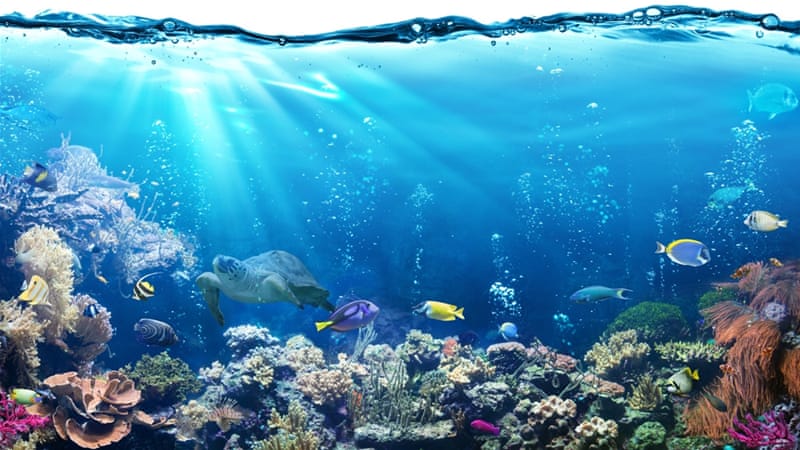
Blue Economy
The ocean is fundamental to our existence on the planet.
Oceans cover 72% of the surface of our blue planet and constitute more than 95% of the biosphere. Life originated in the oceans and they continue to support all life today by generating oxygen, absorbing carbon dioxide, recycling nutrients and regulating global climate and temperature.
Human development activities, however, have seriously taxed the resilience of the marine and coastal resource base. Available data indicates that 87% of global fish stocks are fully or over exploited.
While the international community recognises the role of oceans and seas to improve livelihood and to address the problem of food security, inland aquatic ecosystems such as wetlands, which guarantee livelihoods for the majority of Africans have received little commitment. Increasing pollution, unsustainable coastal development, and wetlands destruction further contribute to the loss of biodiversity, ecological function and the decline in provision of environmental services.
Our Work
At HATOF, we work to bring out the interconnectedness and interdependency between wetlands, water security, and food security by providing information to the national governments and relevant stakeholders on the need to integrate and include inland aquatic ecosystem into the discussion on sustainable ocean and sea development.
We also support coastal resilience through a number of coastal management projects to help vulnerable communities adapt to the impacts of climate change.
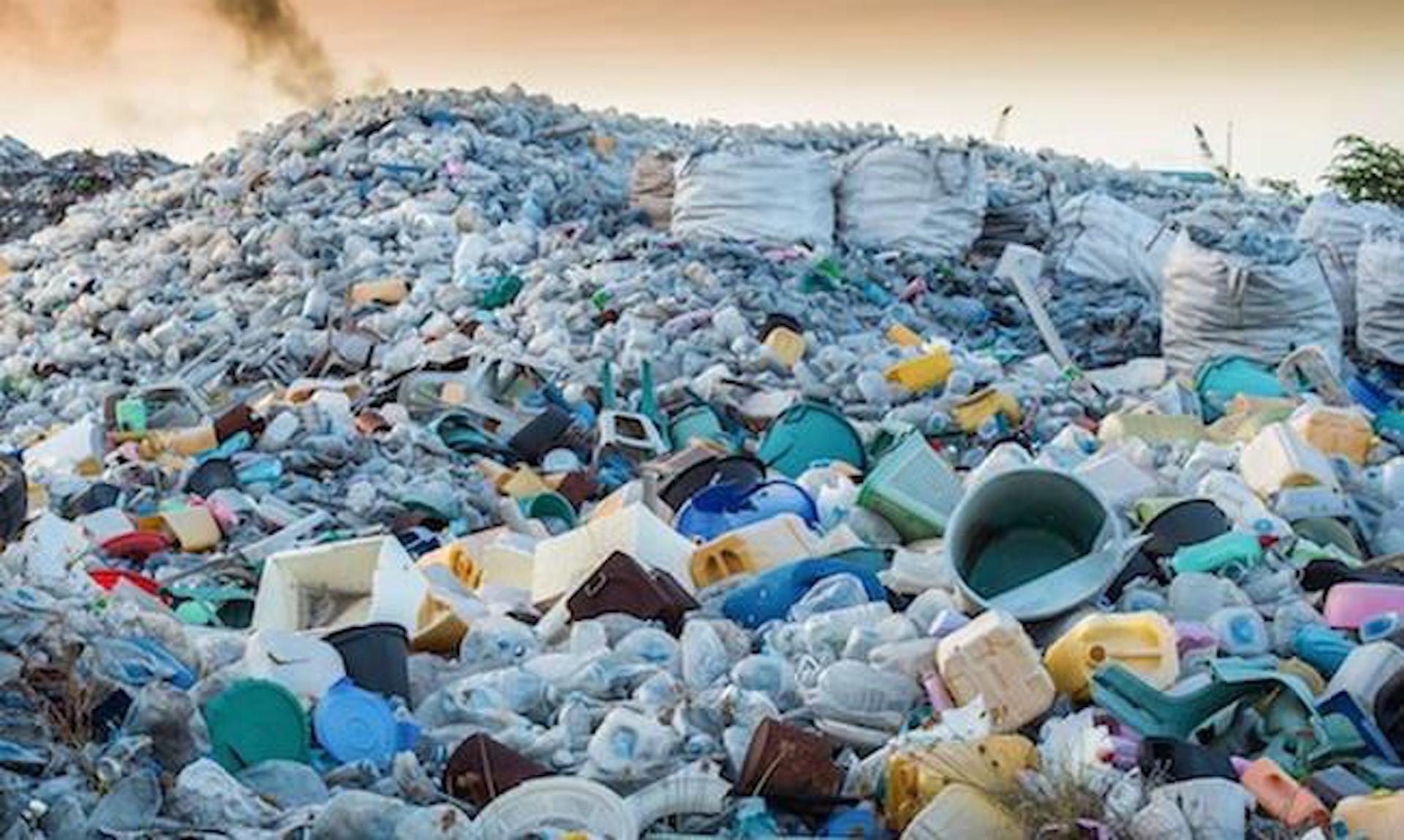
Chemicals and Waste
Toxic chemicals are found in all ecosystems on Earth. It affects biodiversity, agricultural production, water quality, and human health.
Over 100 million man-made chemicals and chemical formulations are used in every sector of the industrial economy. Many chemicals, such as persistent organic pollutants (POPs) and mercury travel over large distances through air, water currents and in migratory species. Some POPs can remain in the human body for more than 50 years.
Our Work
HATOF’s work on chemicals and waste focuses on the Stockholm Convention on Persistent Organic Pollutants, the Minamata Convention on Mercury, and the Montreal Protocol on Substances that Deplete the Ozone Layer.
Our work revolves around policy advocacy, awareness raising and capacity development, as well as research into process safety, enantioselective crystallisation, and environmental remediation and waste recycling.
We explore the effects of application of innovative programs and technologies to address the challenges of plastic pollution, and urban waste management.
